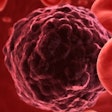Chronic inflammation promotes malignant behavior of human papillomavirus (HPV)-immortalized oral keratinocytes, suggesting that it may be an important cofactor for HPV-associated oral carcinogenesis, according to research presented at the recent International Association for Dental Research (IADR) meeting.
While acute inflammation is a part of the defense response, emerging evidence suggests a strong link between chronic inflammation and cancer, according to researchers in the oral biology department of the University of California, Los Angeles. HPV infection is one of the key factors in cervical cancer development, and possible links between HPV and oral carcinogenesis have been proposed.
However, the mechanisms by which HPV and chronic inflammation contribute to oral carcinogenesis have not been fully understood. The objective of this study was to determine the effect of chronic inflammation on malignant progression of HPV-associated oral carcinogenesis.
The researchers treated HPV-immortalized oral keratinocytes (HOK-16B) with a major proinflammatory cytokine, TNF-α, for four months to examine the effect of chronic TNF-α treatment on the malignant behavior of HOK-16B. They then performed cDNA microarray analysis to compare gene expression between the control and long-term TNF-α-treated cells. Additionally, real-time polymerase chain reaction (PCR) was used to confirm the gene expression.
Chronic treatment with TNF-α resulted in a reduction in differentiation potential, induction in proliferation potential, and induction in migration potential, the researchers reported. cDNA microarray analysis revealed that a subset of genes was significantly downregulated in the long-term TNF-α-treated cells, and the genes involved in differentiation, tumor suppression, and cell-cell junction functions supported the three increased malignant phenotypes, respectively.
Chronic inflammation promotes malignant behavior of HPV-immortalized oral keratinocytes, suggesting that chronic inflammation is an important co-carcinogenic factor for HPV-associated oral carcinogenesis, the research team concluded.



















